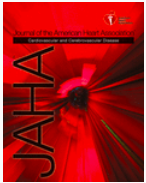 Myotonic dystrophy type 1 (DM1) is one of the most common neuromuscular diseases, especially in adulthood. DM2, formely PROMM (for proximal myotonic myopathy), is much rarer except in Germany and Eastern Europe. DM1 and DM2 are due to expansions of nucleotides in the DMPK and ZNF9 genes respectively, with the common consequence being the sequestration of messenger RNAs in the cell nucleus. Cardiac complications of DM1 (mostly arrhythmias and left ventricular dysfunction) make the disease very serious; they are less frequent in DM2.
Myotonic dystrophy type 1 (DM1) is one of the most common neuromuscular diseases, especially in adulthood. DM2, formely PROMM (for proximal myotonic myopathy), is much rarer except in Germany and Eastern Europe. DM1 and DM2 are due to expansions of nucleotides in the DMPK and ZNF9 genes respectively, with the common consequence being the sequestration of messenger RNAs in the cell nucleus. Cardiac complications of DM1 (mostly arrhythmias and left ventricular dysfunction) make the disease very serious; they are less frequent in DM2.
In an article published in February 2020, an international consortium of clinicians and researchers developed recommendations for cardiologists having to follow and treat this type of patient. Relying mainly on the opinions of experts and on the results of the few controlled clinical studies available, the authors review all aspects of this management, from the diagnosis phase to the monitoring methods (frequency, type of cardiac functional explorations and imaging) and the treatment, prophylactic or not (practice of physical exercise, anti-arrhythmic medication, cardiac pace-maker, implantable defibrillator), of complications mentioned above. The authors emphasize the multidisciplinary approach to this care in close collaboration with the referring neurologist.
